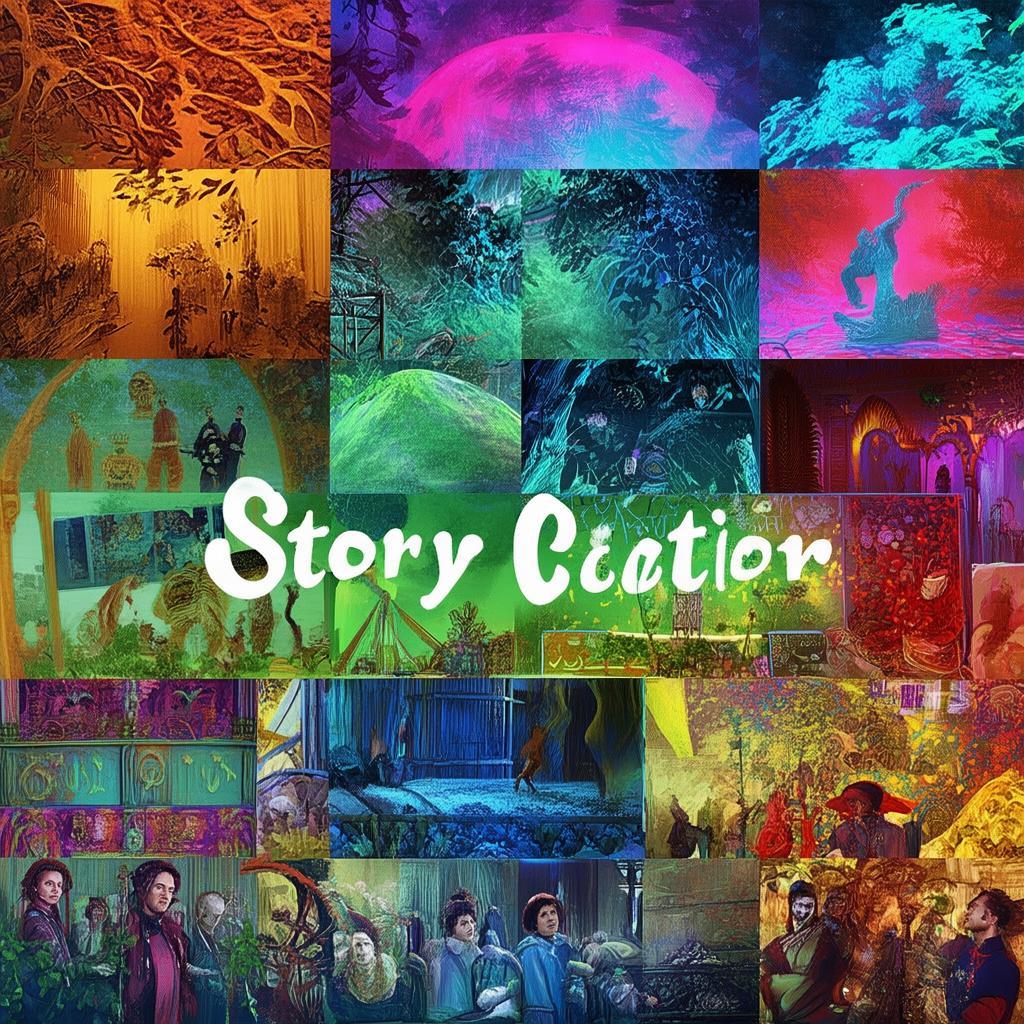Whispers of Redemption
In the heart of a city shrouded in perpetual twilight, where the sun's rays were a rare and fleeting sight, lived a woman named Elara. Her life was a tapestry of shadows, woven from the threads of judgment and guilt. She worked in the Archive, a repository of the city's collective memories, where each record was a judgment, a verdict, a sentence passed upon the souls of the past.
Elara's days were spent amidst the musty pages of ancient tomes, each one a testament to the city's relentless pursuit of justice. But justice, as she had come to understand, was a double-edged sword, capable of cutting both ways. It was a sword that had sliced through her own life, leaving scars that bled into her very being.
One evening, as the clock in the Archive tower tolled the hour, Elara stumbled upon a forgotten scroll. It was a tale of a man named Kael, a sinner who had been unjustly condemned by the city's judgmental council. The scroll spoke of Kael's journey, a quest for redemption that had taken him to the very edge of existence.
Intrigued and haunted by the story, Elara found herself drawn into Kael's world. She began to question the very nature of judgment, the righteousness of the city's decrees, and the worth of the lives that were etched into the Archive's records.
The city was governed by the Council of Shadows, a group of elders who believed that judgment was the only way to maintain order. Their words were law, their sentences were final, and their judgments were the currency of the city's existence. Elara, however, began to see the cracks in the foundation of this system. She realized that judgment, while it may bring order, also bred resentment and bitterness.
As Elara delved deeper into Kael's story, she discovered that his redemption was not a simple matter of atonement but a journey of self-discovery and compassion. Kael had sought forgiveness not just for his sins but for the sins of those who had judged him. He had found that true redemption lay not in the absolution of his transgressions but in the act of forgiving those who had wronged him.

Elara's own heart was heavy with the weight of judgment. She had seen the pain that it caused, both in the records she read and in the lives of those around her. She had witnessed the destruction that judgment could bring, the lives that were shattered by the council's decrees.
One day, as she was sorting through the Archive's latest batch of records, Elara found a name that resonated with her own. It was the name of her own father, a man who had been unjustly accused and condemned. The realization struck her like a lightning bolt, and she knew that she had to act.
Elara approached the Council of Shadows, a move that was as dangerous as it was necessary. She presented her case, not just for her father's innocence, but for a reevaluation of the city's judicial system. She argued that judgment should not be the end of a story but the beginning of a journey toward redemption.
The council was initially resistant, but Elara's passion and the weight of her argument could not be ignored. They agreed to a trial, a trial that would not just determine her father's fate but would also challenge the very nature of judgment in the city.
The trial was a spectacle, a clash of old beliefs and new ideas. Elara stood before the council, her voice steady and her heart pounding. She spoke of compassion, of understanding, of the possibility of change. She reminded them that every life was a story, and that stories could be rewritten, could be given a second chance.
As the trial reached its climax, the council was forced to confront the truth. They saw the error of their ways, the damage that their judgments had caused. They realized that judgment, without compassion, was a hollow victory.
In the end, Elara's father was exonerated, not just legally but morally. The Council of Shadows was reformed, and a new era of justice and compassion began to take root in the city.
Elara's journey had not been easy. She had faced the shadows of her own judgment, the judgment of others, and the judgment of the city. But through it all, she had found the light of redemption and compassion.
The city's Archive was no longer just a repository of judgments but a place of hope and second chances. Elara had become a symbol of change, a beacon of light in a world that had been shrouded in darkness.
And so, in the shadow of judgment, Elara had found her own path to compassionate insight. She had learned that the true power of judgment lay not in its ability to condemn but in its potential to heal and to forgive.
✨ Original Statement ✨
All articles published on this website (including but not limited to text, images, videos, and other content) are original or authorized for reposting and are protected by relevant laws. Without the explicit written permission of this website, no individual or organization may copy, modify, repost, or use the content for commercial purposes.
If you need to quote or cooperate, please contact this site for authorization. We reserve the right to pursue legal responsibility for any unauthorized use.
Hereby declared.









